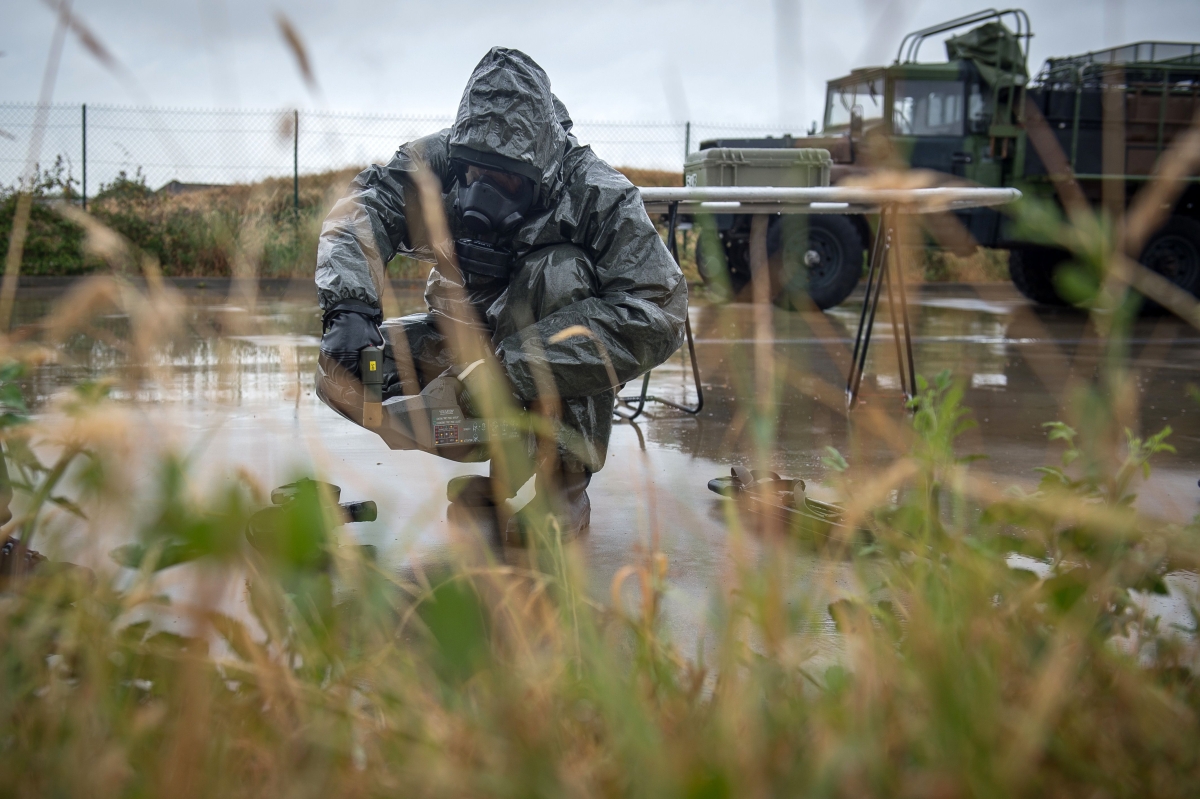Pathogens Have the World’s Attention
Foreign Affairs

(Guillaume Souvant/AFP via Getty Images)
The following is an excerpt of ASPI China Advisor Nathan Levine and Belfer Center Research Fellow Chris Li's article originally published in Foreign Affairs.
The novel coronavirus has demonstrated just how devastating a transmissible pathogen can be—and just how difficult to contain. After a year of pandemic spread, COVID-19, the disease the virus causes, has killed more than 2.5 million people, ravaged the global economy, and set off a cascade of social and political consequences that the world is only beginning to apprehend.
But the sobering truth is that, as deadly diseases go, the world got lucky. The global case fatality rate of COVID-19 is around two percent. One need only compare this to SARS (ten percent), smallpox (30 percent), pulmonary anthrax (80 percent), or Ebola (90 percent) to consider that the coronavirus could easily have been much, much worse. What’s more, these are all natural pathogens. The toll from a virus genetically engineered to increase transmissibility and lethality as a bioweapon could be almost inconceivable.
U.S. President Joe Biden has spoken frequently of restoring the United States’ credibility as a global leader. That task, which comes at a moment of global crisis, will require the United States to recommit to multilateral diplomacy, even while managing a dangerously deteriorating relationship with China. By acting on biosecurity—a neglected priority hiding in plain sight—Biden can make progress on all of these goals. Washington has an opportunity to lead in an era of heightened great-power competition, address the need for arms control measures that reduce the risk of biological weapons, and potentially even push China to cooperate to that end.
AN UNAVOIDABLE CONVERSATION
There can be little doubt as to the destructive capacity of bioweapons. Indeed, the release of one, whether intentional or unintentional, could have an effect wholly comparable to that of a nuclear weapon. And a weaponized pathogen is nowhere near as difficult to produce as even the crudest nuclear device: the World Health Organization concluded in 2015 that the virus responsible for smallpox could be re-created in three months through synthetic biology, using publicly available genomes, in a process most lab technicians or undergraduate students could manage.
U.S. President Richard Nixon recognized this catastrophic potential in 1969 when he ordered the termination of the United States’ offensive biological weapons program that year, declaring that “mankind already carries in its own hands too many of the seeds of its own destruction.” His decision paved the way for the signing in 1972 of the landmark Biological Weapons Convention (BWC), which bans the development, production, or stockpiling of biological agents that have no peaceful use. Today, a total of 183 countries (all but ten UN member states) are signatories.
The release of a bioweapon could have an effect wholly comparable to that of a nuclear weapon.
Nonetheless, after the Cold War, attention to the issue languished. The BWC was always an unfinished project, in that it lacked any legally binding mechanism to verify compliance. Starting in 1994, member states worked together to draw up a protocol to supply such a mechanism. But in 2001, the administration of U.S. President George W. Bush not only rejected the proposal as not in the national interest but, through the efforts of then Undersecretary of State John Bolton, successfully killed the proposed protocol and blocked further negotiation.
Now, however, the American public—and the entire world—is acutely aware of humankind’s deep, interconnected vulnerability to biological threats. As the COVID-19 pandemic demonstrates, viruses carry no passports and respect no borders. Pathogens that emerge from any corner of the world can impose severe costs on the rest of the globe. Thus the present moment provides an opportunity for extraordinary unity behind a new round of multilateral negotiations on biosecurity. Indeed, publics are likely to demand this from their governments.
